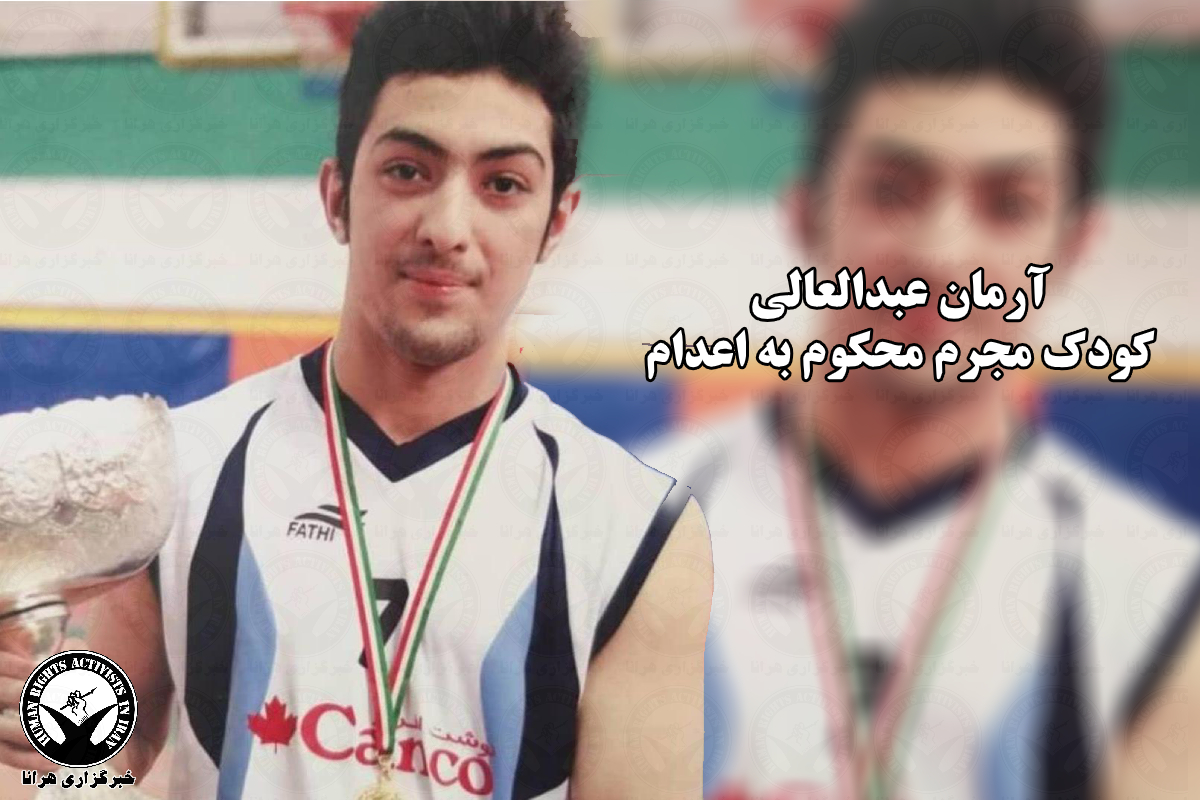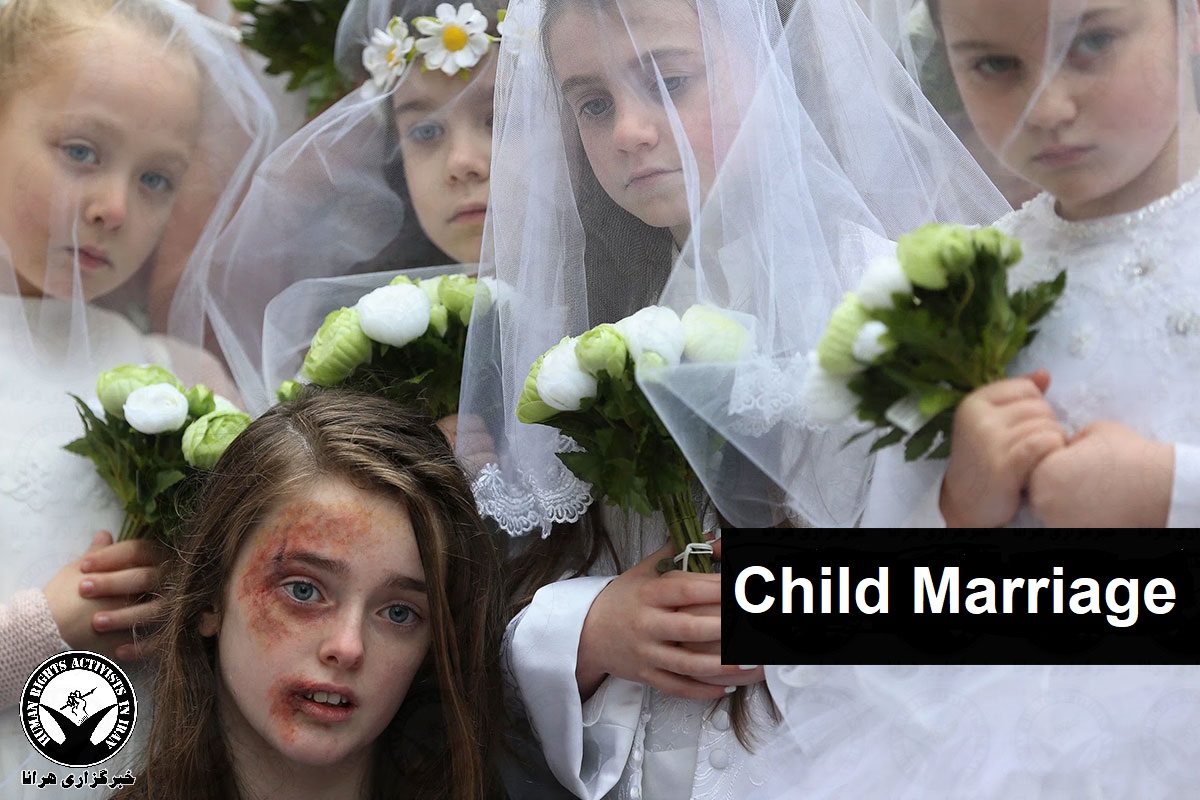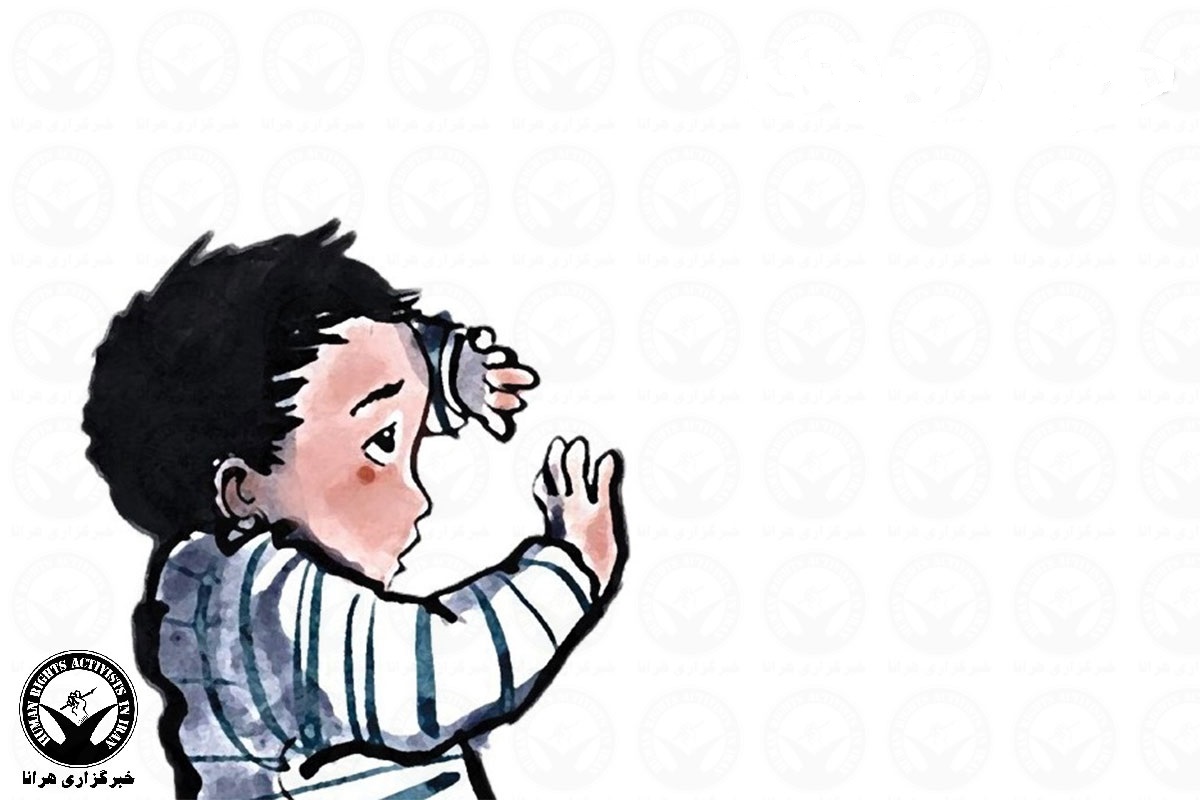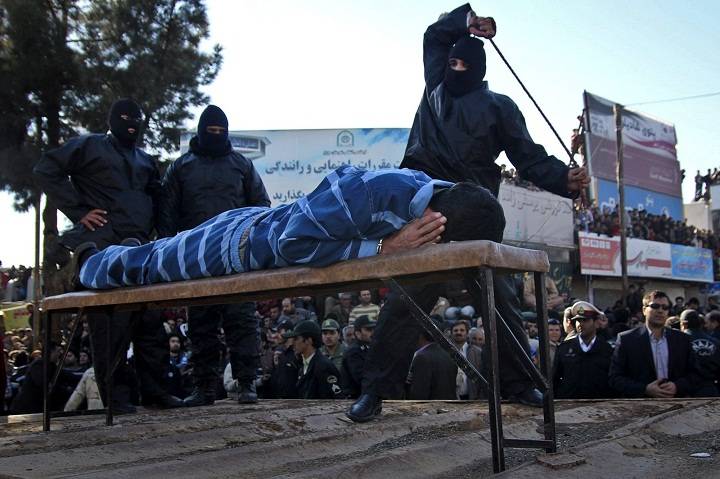This leaflet contains the 2019’s analytical and statistical annual report on human rights in Iran, prepared by the Department of Statistics and Publications of Human Rights Activists in Iran (HRAI). This statistical analysis report presented by HRAI is the result of the daily efforts of this organization and its dedicated members as part of a daily statistic and census project that started in 2009 by this organization.
This annual report on human rights violations in Iran (2019) is the collection, analysis, and documentation of 4259 reports concerning human rights, gathered from various news sources during 2019 [January 1st to December 20th]. Human Rights Activists News Agency (HRANA) has gathered and reported 41%, official or close to the Iranian government sources 53% and other human rights news agencies 6% of all the reports analyzed in this Annual Report.
The following 42-pages includes statistical overviews and related charts on various sections regarding women’s rights, children’s rights, prisoners’ rights, etc. Based on this report, despite the 10% increase in human rights violations reports in provinces other than Tehran, compared to the last year’s annual report, there is still a major concern on lack of proper reporting and monitoring of the human rights by the civil society in the smaller cities.
This report is the result of endeavors made by courageous human rights activists in Iran who pay a very high cost for the realization of their humanitarian beliefs. However, for obvious reasons (i.e. existing governmental limitations and ban on the free exchange of information and government preventing the existence of human right organizations in the country), this report by no means is free of errors and cannot alone be a reflection on the actual status of human right in Iran. Having said that, it should be emphasized that this report is considered as one of the most accurate, comprehensive, and authentic reports on the human rights conditions in Iran and it can serve as a very informative source of information for human rights activists and organizations working on Iran, to better understand the challenges and opportunities that they may face.
This is the brief version and the full report is available for download in PDF format.
The following map illustrates the number of reports per province made by the human rights organizations and news agencies, this is a direct reflection of the capability of the civil society in each province of the country (2019).

As indicated in the distribution map, there exists a major difference between Tehran, the capital, and other parts of the country in terms of the number of published reports. This is while the population of Tehran has been reported on the census of 2017 as 15270000 people, compared to the population of other parts of the country being 81160000 people.
Ethnic Minorities
In the field of national and ethnic minorities’ rights, a total of 309 reports regarding 343 individuals have been registered by the department of the statistics and publication of human rights activists in Iran (HRAI) in 2019. According to these reports, at least 1171 people were arrested, and 60 people were sentenced to 2698 months of imprisonment. Compared to the previous year there has been a 70% decrease in the arrest of ethnic minorities and a 13% increase in imprisonment sentences. The highest number of violations occurred in the month of June, in contrast, the highest decline is observed in the month of December.
Religious Minorities
In this category, 162 reports have been registered by the Department of Statistics in 2019, According to these reports, 135 civilians were arrested, 13 cases of prevention from economical activities, 90 cases were summoned to the judicial and security institutions, and 36 cases of depriving and preventing from education. 76 individuals of the religious minorities were arrested and sentenced by the judicial institutions to a total of 2983 months of imprisonment.
The highest number of violations occurred in the month of January, in contrast, the highest decline is observed in the month of April. In the field of religious minorities, the Baha’is constitute the highest of the Human Rights reports on religious minority violations with 54%, Sunnis 30%, Christians 9%, Dervishes 2%, Jews 1%, Yarsans 1%, and others 5%, of the total reports. The number of citizens arrested in the category of religious minorities has decreased by 78% in 2019 compared to 2018, and the imprisonment sentences issued by the judiciary has decreased by 82%.
Freedom of Speech
In the category of freedom of speech, in 2019, 529 reports have been registered by the Department of Statistics that included 8293 arrested individuals; 274 summonses to the judiciary and security authorities; 4 cases of Internet website filtering, 1 case of nationwide internet shutdown, 1 case of cell phones shut down, 5 reports of publication banning; 17 cases of conviction for publications; 14 cases of intimidation and threats. In 2019, 292 arrestees were sentenced to a total of 10474 months of imprisonment, 4 billion and 278 million and 350 thousand Rials in financial fines, 3470 lashes, and 13 cases of deprivation from civil rights have been reported in this category. In the field of Freedom of Speech, there has been an increase of 51% in the reports of arrests compared to the previous year. Similarly, sentences issued by the judiciary have decreased by 11% based on the number of people being tried, and imprisonment sentences were increased by 40% compared to 2018.
The nation-wide protests of November are one of the most significant events of 2019 in this category. During the November protests that lasted more than 10 days simultaneously in 719 parts of the country. At least 7133 people were arrested, and hundreds died on the streets. The highest number of violations in this category occurred in the months of December, in contrast, the highest decline is observed in the month of March.
Trade Unions and Associations
the category of the rights of associations and trade unions in 2019, 339 reports have been registered by the Department of Statistics and Publications. This includes 69 members of the trade unions who reported being arrested. Also, in this category, 10 individuals have been sentenced to a total of 56 months in prison, 17 cases of summoning to the judicial and security institutions, and 1931 cases of closing the facilities have been reported. In 2019, at least 273 protests and 15 union strikes were held. Most of these protests were related to salary/wage demands from corporations, bad economic conditions, and lack of proper management of corporations.
In the category of Trade Unions and Associations, there has been an 83% decrease in the number of arrests and there has been a 72% decrease in the issue of sentences compared to the previous year. Moreover, the highest number of violations occurred in the month of July, in contrast, the highest decline is observed in December.
Right to Education
the category of violations of academic rights in 2019, 50 reports have been registered by the Department of Statistics and Publication of Human Rights Activists in Iran. This includes 104 students arrested, 1 student has been summoned to the court, 1 student banned from continuing their education, as it was also mentioned in the religious rights section of this report 34 students were prevented from continuing their education because of their religion. In the category of right to education, there has been a 6% decrease in the number of arrests. And based on these reports 11 students were sentenced to 570 months in prison. The highest number of violations occurred in the month of October, in contrast, the highest decline is observed in the month of April.
Right to Life
In the category of right to life in 2019, 246 reports have been registered by the Department of Statistics and Publication of Human Rights Activists Association in Iran. This included 108 death sentences, execution of 248 people with death sentences (including 13 executions in public). Based on the announced identifications of some of the individuals executed, 231 were male and 15 were female. In addition, 4 juvenile offenders have also been executed in 2019 who were under the age of 18 at the time of committing the crime. According to these reports, 79% of the executions were based on murder charges. Moreover, 5% charged with rape, another 12.5% with drug-related charges. 1% were charged with “waging war against God”, also 2% charged with armed robbery. The highest number of violations occurred in the month of August, in contrast, the highest decline is observed in the month of March. The highest number of convictions compromised of 79% of all death sentences are on murder charges and followed by rape charges which are 12.5% of the cases. The highest number of death penalty sentences were issued in Alborz province with 27% due to its two populated and important prisons, followed by Fars province with 10% of the cases. In addition, Rajai Shahr prison and Central Urmia Prison holding the highest number of death sentences. The province of Fars and Kohgiluyeh and Boyerr-ahmad have the highest number of executions in public each with 23% of total executions in public.
According to the statistics, about 5% of the executions were carried out in public and 95% were carried out in prison. Secret executions reported by independent sources and human rights association, indicating that 75% of executions are carried out in secret or without any public notice. In the category of right to life, the execution carried out in comparison to 2018 has decreased by 5%. The number of execution sentences issued also has decreased by 44% and the number of public executions has not changed. In addition, 6% of the executed individuals were female, 93% men.
Cultural Rights
the category of violations of cultural rights in 2019, 64 reports have been registered by the Department of Statistics and Publication of Human Rights Activists Association in Iran. This included 13 arrests, 38 people were sentenced to 186 months imprisonment, and 27 individuals were summoned to judiciary and security organizations. Moreover, 4 cultural materials publication were declined, 13 licenses were revoked, 6 people were banned from public speaking or performing, 4 historical places were damaged, 2 historical places were neglected, confiscated 38000 copies of books. In this category, arrests have decreased by 87% compared to the previous year. The highest number of violations have been reported in January, in contrast to the lowest number in September.
Workers’ Rights
the category of violations of workers’ rights in 2019, 1088 reports have been registered by the Department of Statistics and Publication of Human Rights Activists Association in Iran. This included 143 arrests. 33 workers activists or workers were sentenced to 696 months in prison, and 176 months of suspended sentences and 762 lashes, and 198 people were summoned to judiciary and security organizations. During 2019, a total of 799 months of overdue payment of salaries to workers has been reported. 4746 workers were laid off or fired, 10571 cases of unemployment, 50050 lacked work insurance, 199 workers waiting for work-related decisions. In addition, 1412 people have lost their lives in work-related accidents, and 14245 workers have been injured while at work. On a global scale amongst other counties, Iran ranks 102nd in work safety. Also, in 2019, at least 279 worker protests and 21 workers strike took place. most of these protests were regarding wages. Moreover, the arrest of workers has decreased by 35% compared to 2018. In the monthly comparison of workers’ rights violations in 2018, the highest number of violations per month have been in July, in contrast with the lowest being in April.
Women’s Rights
In the category of violations of women’s rights in 2019, a total of 103 reports have been registered by the Department of Statistics. At least 335 women were physically and sexually abused, 12 cases of honor-killings, and 19 cases of summoned women’s rights activists to judiciary and security organs. At least 19 women’s rights activists and 86 others were arrested during the women’s march. At least 13 women’s rights activists were sentenced to 926 months in prison. The highest number of reports in women’s rights violations was in May and June and the highest decline in reports is observed in January.
Prisoners’ Rights
In the category of violations of prisoners’ rights in 2019, a total of 540 reports have been registered, 104 reports on physical assault of prisoners, 141 reports of deprivation/neglected of medical care, 151 reports of illegal transfer to solitary confinement, 302 attempted hunger strikes, 415 cases of forced transportation or exile, 71 cases of threatening prisoners, 67 cases of banning prisoners of having visitors, 7 cases of torture, 14 case of deaths by diseases, 65 cases of lack of access to lawyers, 742 reports of prisoners being held in unsuitable circumstances. Also, in this category, there have been 71 cases of keeping prisoners in an unsure state about their sentence and situation. Based on the number of reports per month, the highest number of reports in prisoners’ rights violations has been in July and the highest decline in reports is observed in December.
Sentences
2019, the judiciary of the Iranian government, including the initial court and appeal, issued 19111 months of imprisonment. These reports included; 2698 months of imprisonment for the ethnic minorities, 2983 months of imprisonment for religious minorities; 10474 months of imprisonment in the category of freedom of speech—it should be noted, these statistics only include the court sentences that indicated detailed information or characteristics of the verdicts. The highest number of reports in this category has been in July and the highest decline in reports is observed in May. In addition, a total of 5 billion and 152 million and 350 thousand Rials in fines and 4676 lashes has been issued in 2019. In 2019, the number of convictions of citizens or activists has decreased by 31%. Moreover, the convictions of religious minorities decreased by 82%, ethnic minorities increased by 13%, and freedom of expression has been increased by 40%.
Arrests
In 2019, the security forces arrested 9201 individuals because of political or civil rights-related activities. The statistical analysis exhibited 69 case of arrest in the trade union category, 343 arrests in the category of ethnic minorities, 135 arrests in the category of religious minorities, 8293 arrests in the category of freedom of speech, 100 arrests of students in the category of right to education, 13 arrests in the field of culture, and 143 arrests in the category of workers’ rights. The highest number of reports in this category has been in November and the highest decline in reports is observed in July. In 2019, the number of arrests increased by 12%. According to these reports, the number of arrests decreased in ethnic minorities by 70%, culture by 87%, religion minorities 78%, unions 83%, students 6%, workers’ rights 35%, and in the category of freedom of speech increased by 51%.
Human Rights Activists in Iran (HRAI)
Department of Statistics and Publications
January 2020













